Dr Reti prescribes a bitter pill
Health New Zealand has been quite economical lately. I don’t mean ‘economical’ in the fiscal sense, of course. Read more

Dr Michael Johnston is a Senior Fellow at the New Zealand Initiative. He leads the workstream on education.
Prior to his time at the Initiative, Dr Johnston held academic positions at Victoria University of Wellington from 2011-2022. From 2020 until 2022 he was the Associate Dean (Academic) in the University’s Faculty of Education.
Prior to his time at Victoria, Dr Johnston was the Senior Statistician at the New Zealand Qualifications Authority, a position he held for 6 years. Before that, he was a lecturer in psychology at the University Melbourne and a Research Fellow at Latrobe University.
Dr Johnston holds a PhD in Cognitive Psychology from the University of Melbourne.
Phone: 044990790
Health New Zealand has been quite economical lately. I don’t mean ‘economical’ in the fiscal sense, of course. Read more
In this episode, Michael talks to Nick Gibb, former UK Minister for Schools, about education reforms implemented in England over the past decade. The conversation covers various aspects of these reforms, including the introduction of systematic synthetic phonics for reading instruction, changes to the mathematics curriculum, teacher training improvements, and the challenges faced in implementing evidence-based approaches in education. Read more
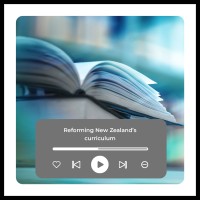
In this episode, Oliver and Michael discuss recent education reform recommendations in NZ, focusing on the development of a knowledge-rich curriculum and evidence-based teaching practices. Michael, who chaired the Ministerial Advisory Group that made these recommendations, defends the proposed changes against various criticisms and emphasizes that they are based on scientific research about effective learning, not political ideology. Read more
In this episode, Michael and James talk to Toby Young, founder of the Free Speech Union in the United Kingdom, the associate editor of The Spectator, and a former editor of Quillette. The discussion spans a wide range of topics including the challenges to free speech in academia, the evolution of charter schools in the UK, and the broader implications for liberal democracy, offering insights into the complex interplay between free expression, education policy, and political shifts in contemporary society. Read more
In the opening months of 2024, I had the honour of chairing a Ministerial Advisory Group (MAG) for Education Minister Erica Stanford. Our remit included both the curriculum, which specifies what students should be taught, and the common practice model, which specifies methods of teaching. Read more
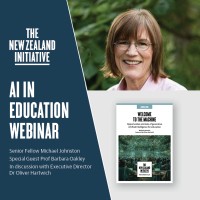
Dr Michael Johnston discusses his new report Welcome to the Machine: Opportunities and risks of generative AI for education with Prof Barbara Oakley. Dr Oliver Hartwich moderates this discussion. Read more

New technology typically inspires both utopian dreams and dystopian fears. AI is a salient example of this optimism-pessimism dichotomy. Read more
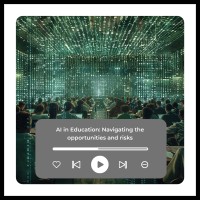
This podcast episode is from our recent AI in education webinar where Michael presents his report on generative AI in education, emphasising its potential as a supportive tool while cautioning against replacing traditional learning methods. Prof Barbara Oakley joins as a special guest to provide expert commentary on the cognitive science aspects. Read more
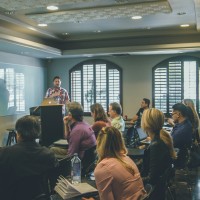
In the 2024 budget, substantial funding was announced to move teacher education towards an in-school, apprenticeship-style model. The injection of funding is intended to address the shortage of teachers currently facing our schools. Read more
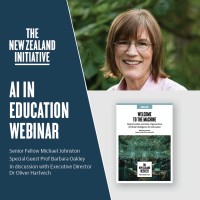
The New Zealand Initiative's Executive Director Oliver Hartwich interviews Senior Fellow Michael Johnston about his report Welcome to the Machine: The opportunities and risks of generative Artificial Intelligence for Education. Special guest Professor Barbara Oakley also joins their discussion. Read more

It is about 18 months since the release of Chat-GPT, the first widely available ‘large-language’ artificial intelligence (AI) chatbot. Even in that time, the capabilities of AI have massively improved. Read more
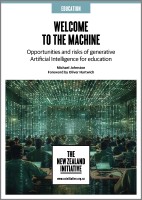
This report calls for a science-based approach to using artificial intelligence (AI) in classrooms. This will help schools get the most out of AI while reducing risks to teaching and learning. Welcome to the Machine: Opportunities and Risks of Generative Artificial Intelligence for Education, written by Senior Fellow Dr Michael Johnston, will help educators and policymakers navigate the rapidly evolving landscape of AI in education. Read more
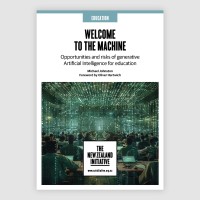
EMBARGOED UNTIL 12.00 PM, MONDAY 17 JUNE Wellington (Monday, 17 June 2024) - A new report from The New Zealand Initiative calls for a science-based approach to using artificial intelligence (AI) in classrooms. This will help schools get the most out of AI while reducing risks to teaching and learning. The report, Welcome to the Machine: Opportunities and Risks of Generative Artificial Intelligence for Education, written by Senior Fellow Dr Michael Johnston, will help educators and policymakers navigate the rapidly evolving landscape of AI in education. Read more
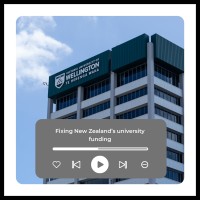
In this episode, Michael and James talk to Dr Dennis Wesselbaum about issues with New Zealand's current university funding model, which relies heavily on student enrollment numbers. They explore potential reforms to create a more stable and effective system that balances access, workforce preparation, and research excellence. Read more
In this episode, Michael talks to Craig Dobson, a veteran science teacher, about the changes and challenges in the New Zealand education system over the past three decades. They discuss the impact of education reforms, the evolving role of teachers, issues with student achievement and teacher retention, and potential solutions to improve the system. Read more